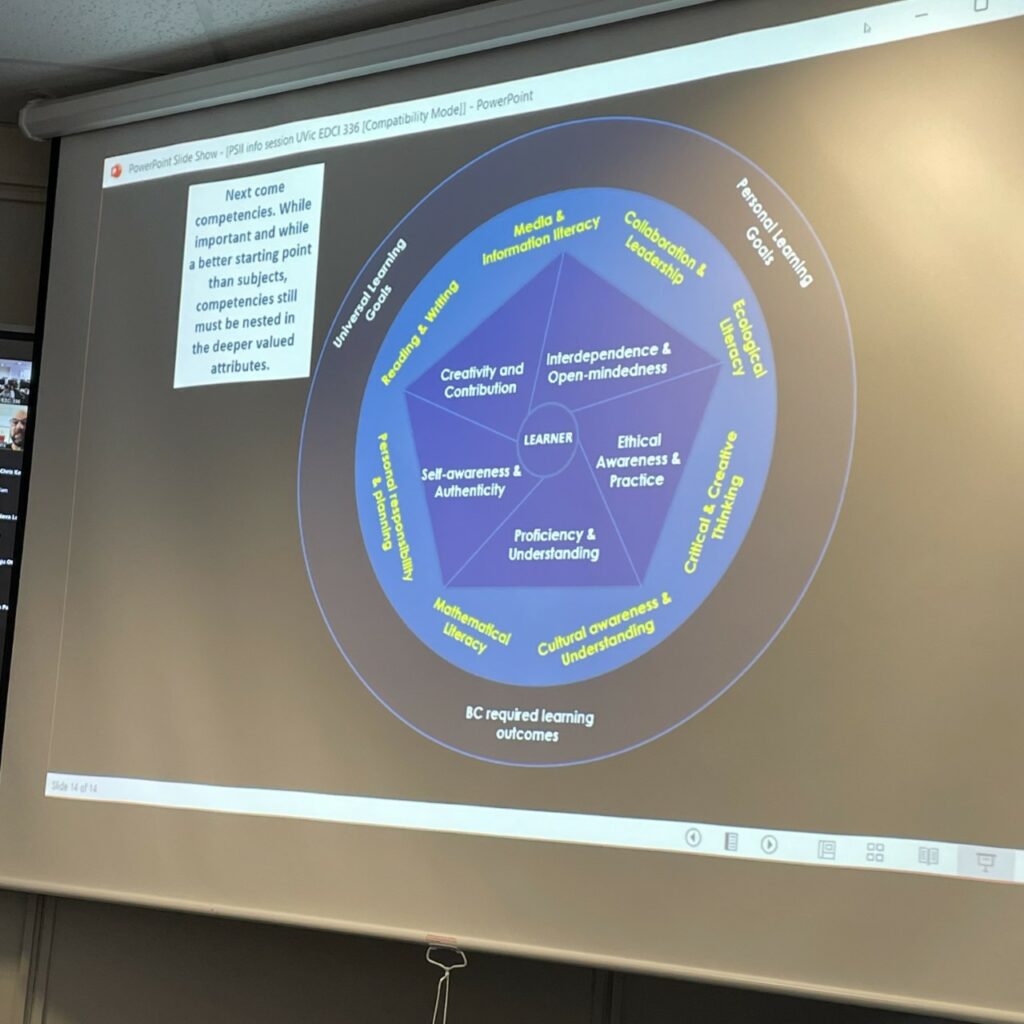In this blog post, I will discuss our guest speaker, Jeff Hopkins and the mini-lesson Joanna did with us!
Firstly, this week we had a zoom class with Jeff Hopkins, the founder of Pacific School of Innovation and Inquiry (PSII). PSII is an independent high school in Victoria that mainly focuses on what the student wants to learn. Throughout the year, a student’s primary focus is their inquiry project. This project could focus on a few subjects the student is most interested in. The breakdown for creating their project looks like this:
- Question generation
- Initial research
- New Questions (going off the first one but more in-depth/reframed)
- Creating Learning Activities
- Implement Learning Activities
I thought this school was neat because the students were in control of their learning. Jeff pointed out how the teacher’s role is much different compared to public school teachers. When I think of teachers in the public school system, they control what students learn. They are always there to support the students, but they are also the ones who teach the students everything. Whereas at PSII, teachers support the students and help them further their research. The teachers are not the key to all the learning, as students must go off independently and find their own data. Altogether, I think PSII is an intriguing school, and I’m excited to see how it develops over the years.

Joanna’s mini-lesson with us today in class touched on many different points that we should always keep in our toolboxes as future teachers. I will list below a few points that are key takeaways for me!
- HyperDocs – where teachers give teachers; a free website that contains various resources (ex., Lesson plans) for teachers to use.
- Never compare our school education to current students. While we will always want to do this, it is important not to. Times are changing, and with the curriculum constantly evolving, the world is doing the same. It is essential to realize that we are in entirely different times.
- Always read the room of your students; checking in to see where each student is at in their learning is critical for everyone to succeed.
- Teaching students you do not always need to exceed expectations to get an A. When Joanna brought this up in class, I completely agreed with this statement. Yes, students should constantly challenge themselves but meeting the expectations should be an A. She said this as students have met all the requirements you have asked for, meaning they have done everything.
Feature Image: Photo by Alejandro Luengo on Unsplash

Leave a Reply
You must be logged in to post a comment.